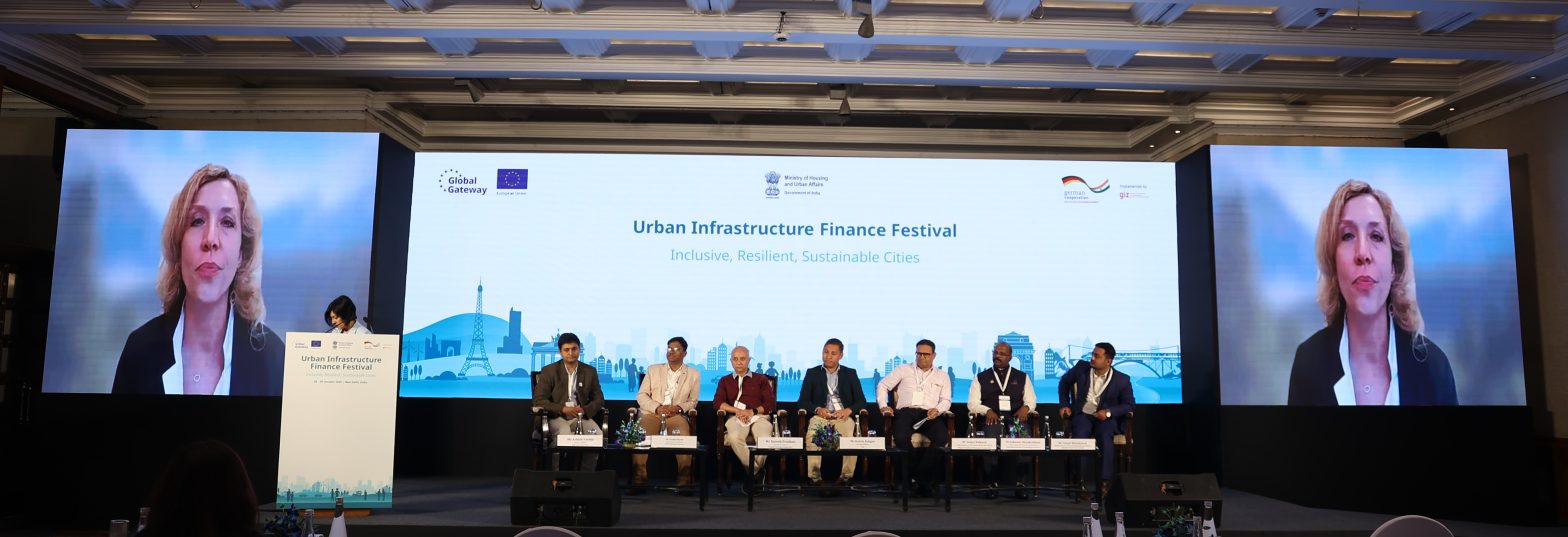New Delhi, 29 October 2025 — The International Urban and Regional Cooperation (IURC) Asia & Australasia Programme officially launched its India component during the Urban Infrastructure Finance Festival 2025, held under the theme “Inclusive, Resilient, Sustainable Cities.”
The Kick-off Meeting for IURC India, organized as part of the festival, marked a major milestone in advancing international city-to-city cooperation between the European Union (EU) and India. Moderated by Ashish Verma, IURC India Country Coordinator, the session brought together EU representatives, national partners, and six Indian pilot cities — Chennai, Pimpri Chinchwad, Jabalpur, Cuttack, Gangtok, and Leh— to explore collaborative opportunities in sustainable urban development.
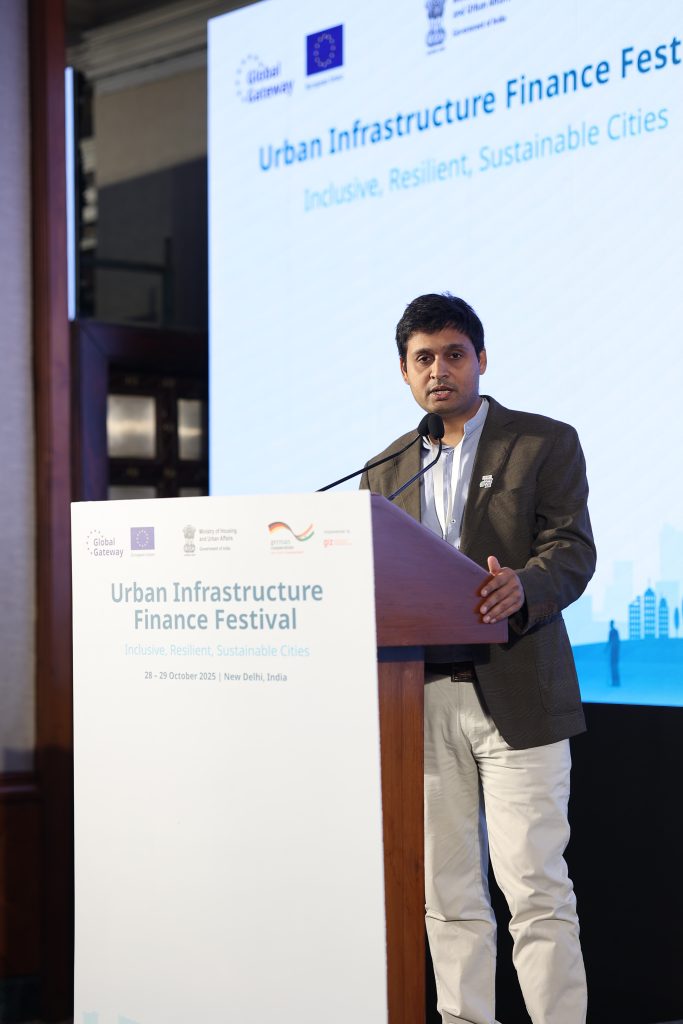
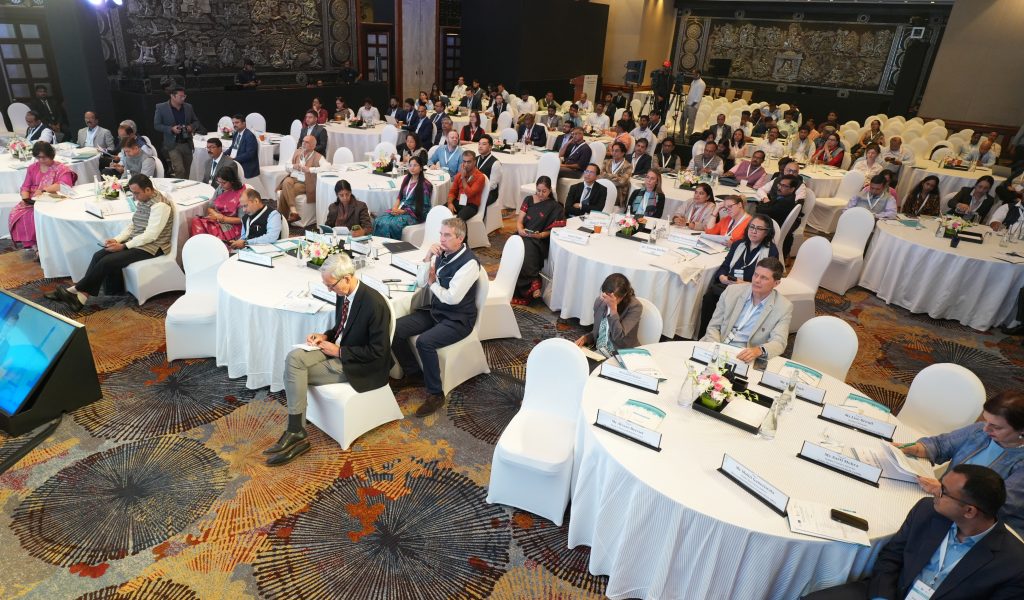
Opening the session, Ms. Viktorija Kaidalova, Programme Manager, EU Service for Foreign Policy Instruments (Bangkok), highlighted the evolution of the EU–India urban partnership from the IUC to IURC Phase 2. She commended the six Indian cities for their active participation and called on them to “think long-term, engage communities, and connect with global opportunities” through IURC cooperation — emphasizing the need to move from plans to projects that deliver measurable results.
Mr. Lutz Köppen, Policy Officer, Directorate-General for Regional and Urban Policy (DG REGIO), underscomred the EU’s belief that “cities are the laboratories of the world’s green transition.” He explained that IURC connects local leaders driving change and cited earlier successful city partnerships in Europe and India. He further stressed the importance of blending public and private finance and leveraging initiatives like the EU’s Global Gateway to support transformative urban projects.
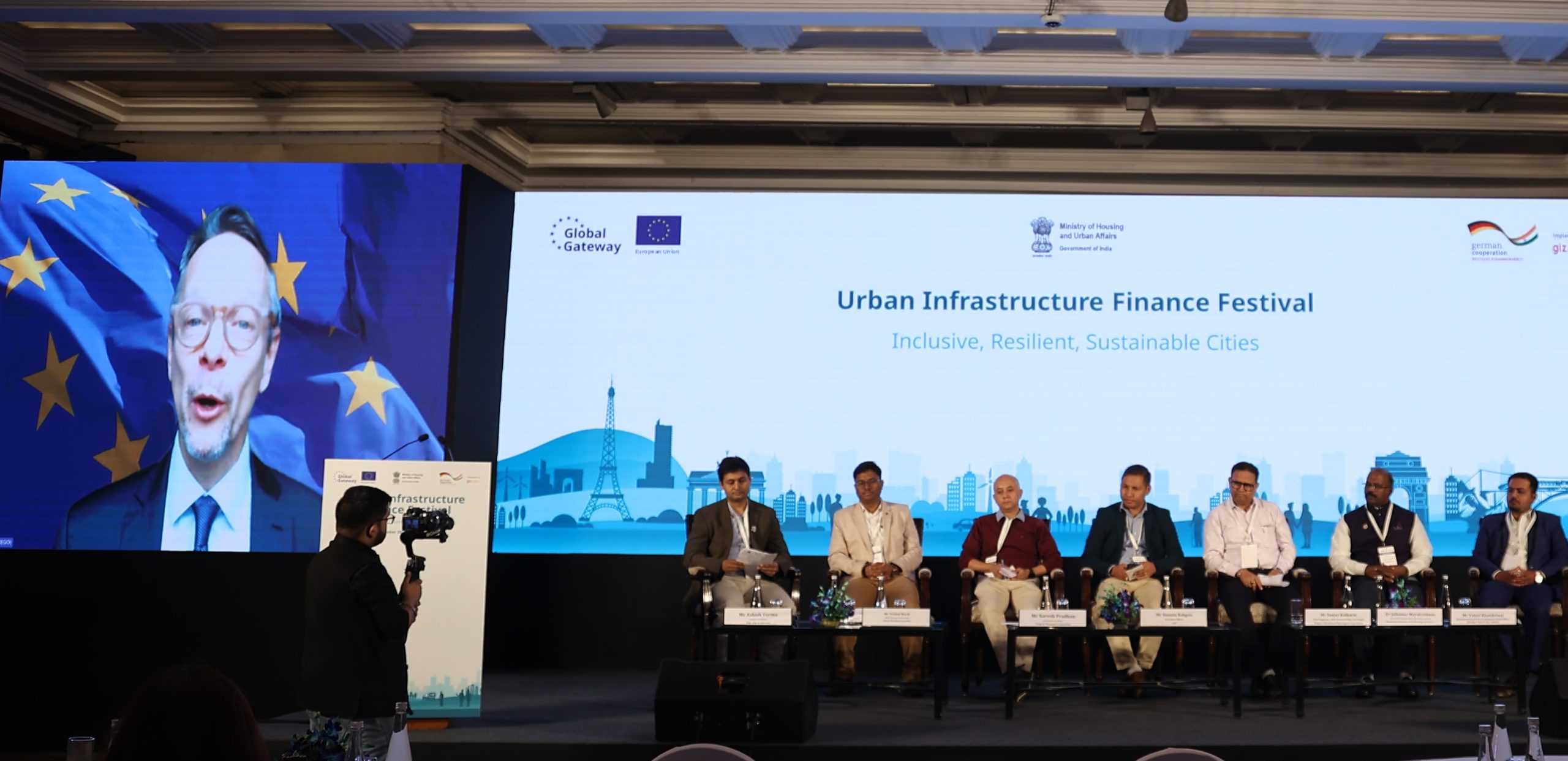
Mr. Pablo Gándara, Team Leader, IURC Asia & Australasia, extended greetings to representatives from MoHUA, the EU Delegation to India, and GIZ, acknowledging their support in enabling the formal launch. He outlined the key activities under IURC Phase 2, focusing on pilot projects, knowledge exchange, and best-practice sharing to strengthen sustainable urban cooperation between EU and Indian cities.
The session was also graced by the presence of Ms. Smita Singh, Senior Programme Manager, EUD India, who reaffirmed EU’s continued commitment to supporting the EU–India Partnership on Sustainable Urbanisation and to facilitating collaboration between national and local governments to accelerate climate-resilient and inclusive urban growth.
City Highlights and Key Challenges
Representatives from all six Indian pilot cities presented their thematic priorities, expectations, and main challenges under IURC Phase 2:
- Dr. Jaikumar Mayakrishnan, Dean (International Affairs), Hindustan Institute of Technology and Science, Chennai — emphasized opportunities for cooperation on circular economy and sustainable mobility, while noting challenges in data integration and private-sector engagement.
- Mr. Sanjay Kulkarni, Chief Engineer, Pimpri Chinchwad Municipal Corporation — focused on urban innovation, mobility, and climate resilience, citing challenges in managing rapid urbanization and multi-agency coordination.
- Mr. Vatsal Khandelwal, Nodal Officer, Jabalpur Smart City Limited — underlined urban regeneration,affordable housing, and city greening, identifying financing and inclusion as key challenges.
- Mr. Trishul Mardi, Assistant Commissioner, Cuttack Municipal Corporation — discussed advances in solid waste management, calling for technical cooperation to improve segregation, logistics, and public awareness.
- Mr. Naresh Pradhan, Joint Chief Town Planner, Gangtok Municipal Corporation — presented the city’s vision for sustainable tourism and climate-sensitive planning, highlighting fragile ecosystems and infrastructure pressure as core challenges.
- Mr. Stanzin Rabgais, Executive Officer, Leh Municipal Committee — emphasized climate resilienceand sustainable resource management, noting constraints in capacity, financing, and extreme climate conditions.
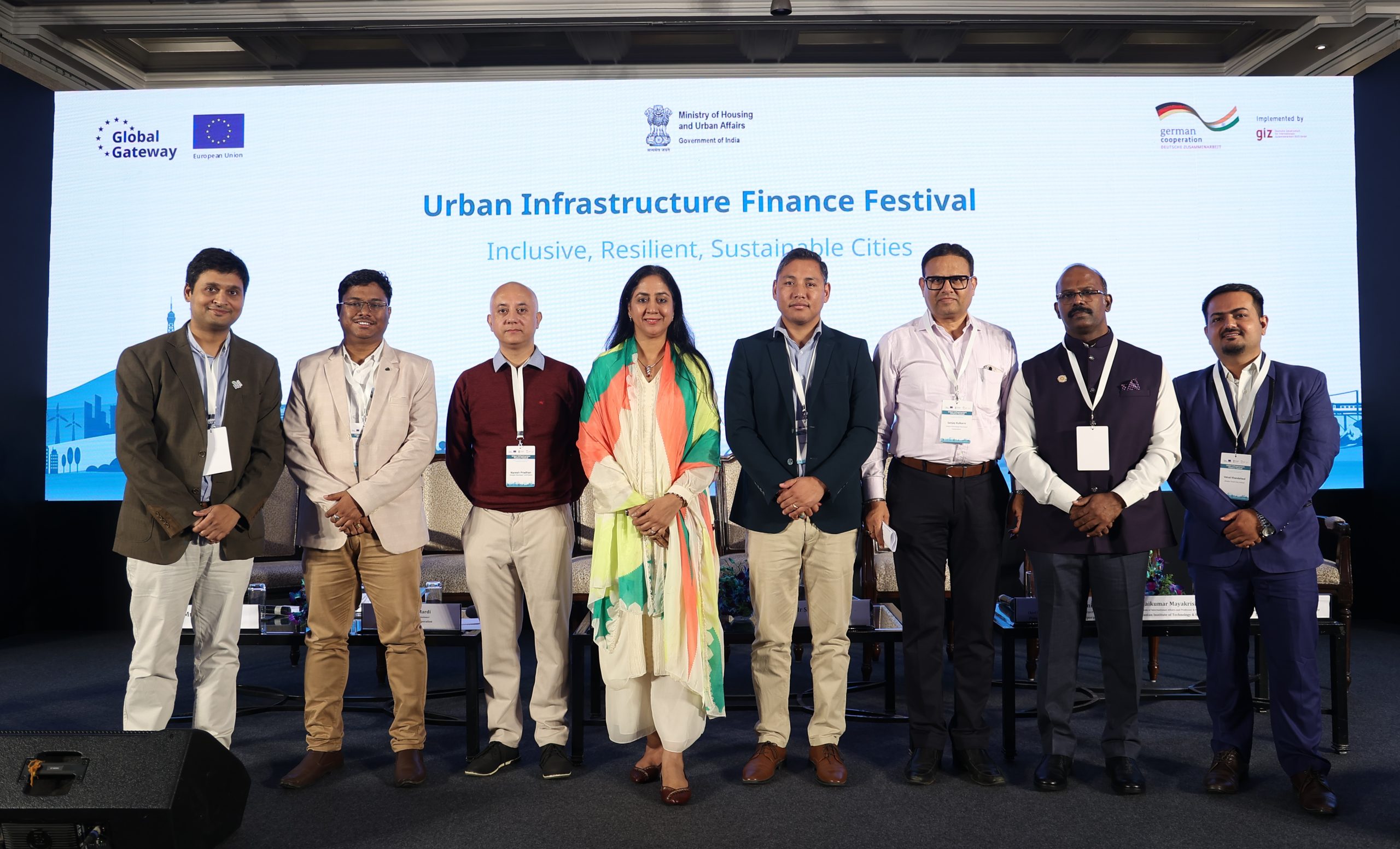
Outcomes
The discussion identified shared priorities such as climate adaptation, circular economy, digital innovation, and sustainable financing as core cooperation themes. Both EU and Indian representatives reaffirmed the importance of aligning these partnerships with national initiatives like the Smart Cities Mission and the National Urban Policy Framework.
The session concluded with a commitment to develop joint action plans, capacity-building activities, and technical exchanges, marking the start of a dynamic new chapter in EU–India cooperation for sustainable urban transformation.
The launch of the IURC Asia & Australasia Programme in India stands as a strategic step toward building a network of cities dedicated to inclusive, resilient, and climate-smart urban futures.
